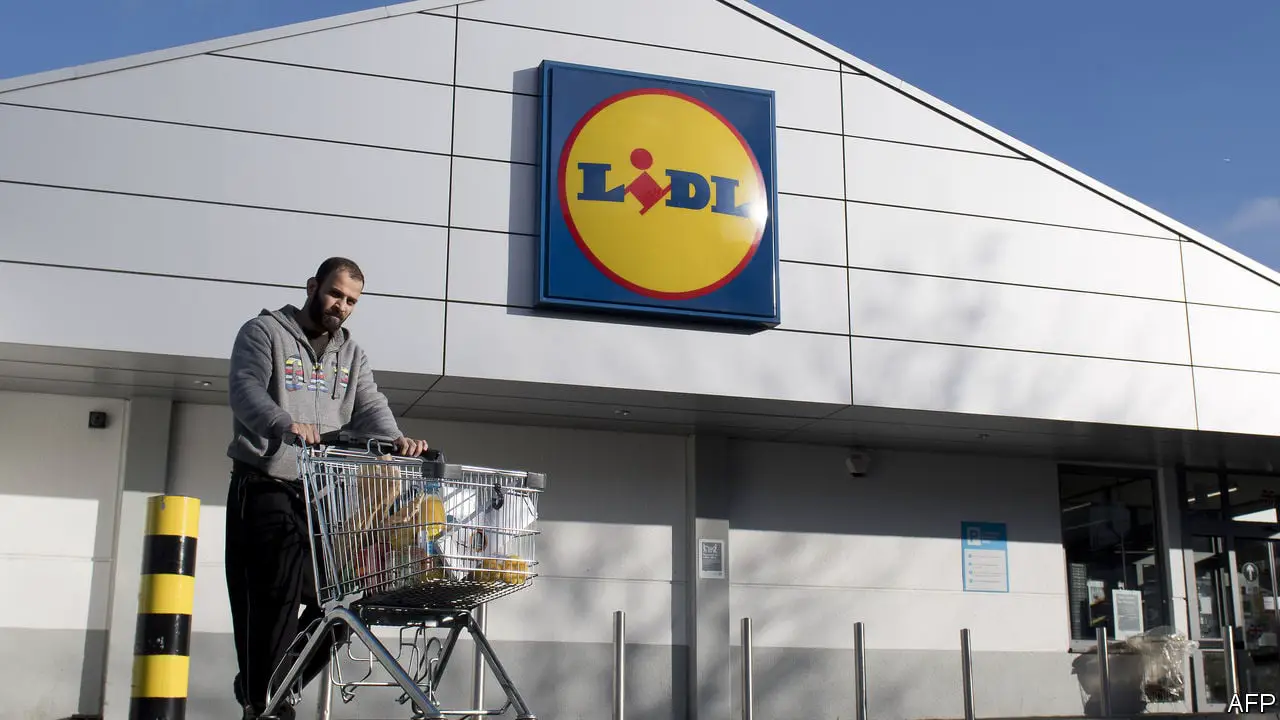
By BAGEHOT
“GAME of Thrones”, which, in case you hadn’t noticed, returned for its eighth and final season this week, has already had a profound impact on the television industry (if you’re a TV producer with an idea for a multi-series drama your chances of getting a green light have skyrocketed). Let’s hope it has an equally profound impact on the history industry.
Over the past few decades academics have focused on history from below—hence all those university seminars on bastardy in 15th-century Nottingham and hand-loom weavers in 18th-century Lincoln. They have done this for obvious intellectual reasons: Karl Marx’s contention that “the history of all hitherto existing societies is the history of class struggle” is undoubtedly a powerful insight. Added to this is a sociological reason: the vast expansion of the universities (and the arrival of a more socially and ethnically diverse student population) means that historians are reluctant to teach the same thing as they did when they were training a future ruling class. A changing student body requires a changing curriculum.
“Game of Thrones” suggests they were doubly wrong. They are wrong about demand: even in a democratic age people are fixated on the old-fashioned history of kings and queens: that is the history of people who combine something that is quite unusual (lots of power) with other things that are quite usual (personal quirks and family quarrels). History may be in decline as an option in universities precisely because it focuses so much on history from below rather than on history from above. In some ways “Game of Thrones” is a dramatic presentation of Walter Bagehot’s great insight about the British monarchy, that it thrived in a democratic age precisely because it humanised power by putting a family and its foibles on the throne.
They are also wrong about something more fundamental. “Game of Thrones” is compelling precisely because it recognises that dynastic struggles have often taken precedence over class struggles. Up until the first world war, the world was run by a collection of dynasties that possessed every human foible imaginable (from insanity to dwarfism to incestuous longings) and who spent their lives playing the game of thrones: forming dynastic alliances, sometimes even marrying their relatives, going to war over rival family claims to the throne and, above all, scheming to maximise their power.
“Game of Thrones” gets a remarkable number of big things right about the nature of dynastic societies. One is that the dynastic principle eliminates the difference between the public and private realms, a difference that is fundamental to democratic and meritocratic societies. Public life in a dynasty is shaped by the personal foibles of the monarch. Power is wielded by people who can get physically close to the king. The world’s oldest political offices are all related to the monarch’s physical needs—looking after his horse or falcons, or guarding his bedchamber—and were usually reserved for members of his own family or the most blue-blooded aristocrats.
A second is that dynasties put biology at the heart of society. The fate of kingdoms depends on the physical fitness of kings and their ability to produce male heirs (Britain arguably had its first Brexit, the Reformation, because of Henry VIII’s difficulties in producing a male heir). Political dynasties can become global powers if they can marry the right people and produce enough children (the Saxe-Coburgs were the greatest dynasty builders of the 18th and 19th centuries, succeeding first in capturing the British throne and then, because of Queen Victoria’s clever marriage scheming, putting their progeny on the thrones of most of Europe). Royal daughters had to expect to be pawns in the game of alliance building.
All of which leads me to unveil my idea for an HBO production of my own: a history of the Habsburg dynasty. This would be relatively cheap by the standards of recent productions: most of the great Habsburg palaces are still intact and Vienna’s museums are stuffed full of suits of armour, portraits, furniture, table settings etc. And the story is every bit as weird as the story of the “Game of Thrones”. The Habsburgs were so prone to in-breeding that people joked that they married their cousins and slept with their siblings. Charles II of Spain was a mass of genetic problems: his head was too big for his body and his tongue was too big for his mouth, so that he had difficulty speaking, and constantly drooled; his first wife complained that he suffered from premature ejaculation and his second wife that he was impotent; as if that wasn’t enough, he also suffered from convulsions. He died at 39, mercifully without an heir. These personal peccadilloes didn’t prevent the Habsburgs from becoming champion players of the game of thrones, producing one of the most far-flung and enduring empires the world has seen.
****
“CONSERVATIVE” is one of those words that come with an implied question: what is it that you want to conserve? Britain’s Conservative Party is in such turmoil at the moment because it is at sixes and sevens over its answer to this question. In the Cameron-Osborne years it wanted to conserve the Clinton-Blair consensus: that is a combination of free-market economics (symbolised by support for globalisation), social liberalism (symbolised by support for gay marriage) and government activism, particularly in the creation of human capital. That was always an elite project that failed to stir the emotions of most conservative voters and, when it came to gay marriage and hyper-globalisation, may well have repelled them. But it was an elite project that was destroyed in the flames of the Iraq war, arguably the first and last war of neo-conservative globalisation, and the 2008 financial crisis. Now the battle is on between three different answers to the question.
The most powerful is the nation-state. The heart of Brexit is not racism (as some Remainers annoyingly claim) or a desire to be truly global as opposed to narrowly European-focused (as Boris Johnson pretends). It is the desire to restore the sovereignty of the nation-state. Brexiteers don’t just dislike the demands that the European Union poses in terms of agreeing to its rules and regulations. They dislike the idea, beloved of some if not all in Brussels, that the nation-state is an anachronism that we need to get beyond. The fury of the Brexiteers’ resistance to Theresa May’s half-way house approach to Brexit, combined with the flight of many Conservative voters to the Brexit Party, suggests that, to survive, the Conservative Party may have no choice but to become the party of the nation-state.
This defence of the nation-state is linked to a broader defence of the traditional British way of life: that is, Britain’s green and pleasant land (Michael Gove’s agenda at the department of the environment); its provincial cities (the devolution initiative and the creation of new mayors); its built environment (the department of housing’s “building beautiful” initiative which has been sadly overshadowed by the row about Sir Roger Scruton).
A second answer is the traditional values of family and faith. This is the answer that the Cameroons most disliked. Proclaiming a faith in God or a belief in the traditional family was a sure way of getting yourself kicked off the Notting Hill dinner-party invitation list. But they were not alone: Theresa May, the daughter of a vicar and a regular churchgoer, initially embraced transgender rights on the grounds that it was the new gay marriage. The Conservative grassroots are rather more tradition-minded than this, particularly when it comes to transgender activists. Jacob Rees-Mogg has demonstrated that you can win a large grassroots following by speaking out unashamedly for “faith and family”, particularly if you link defence of faith and family to defence of the nation-state.
A third answer is the capitalist system. The Conservative Party has traditionally been the party of business and the City—indeed there was a time, between the wars, when the party was actually dominated by businessmen such as Stanley Baldwin, whose family owned an ironworks, and Neville Chamberlain, whose family once produced a third of the world’s nails. I suspect that Philip Hammond, the chancellor of the exchequer, believes that his party’s main job is to create a favourable environment for business, though he doesn’t exactly wear his political philosophy on his sleeve. The same may be true of Jeremy Hunt, the foreign secretary.
A closely connected answer is “freedom”. Many Tories regard the defence of capitalism as part of a broader defence of freedom. (They also argue, from a public-relations point of view, that “freedom” is a much easier sell than “capitalism”.) Liz Truss, Mr Hammond’s underling at the Treasury and a woman who exudes leadership ambition from every pore, is a leading proponent of this school. Her shtick is to update Mrs Thatcher’s freedom agenda for a populist age: continue with the Thatcherite policies of deregulating markets and encouraging competition but also put a heavy emphasis on the gig economy and social liberalism. Her aim is to reinforce the Thatcherite revolution by showing young people that their personal interests, both as consumers and as young professionals, lies in embracing the start-up economy.
Some Conservatives would no doubt argue that the proper answer to the question is “all of the above”: you need a fusion of all these things for each one of them to make sense—for example, you can’t defend Britain’s built environment without having the wherewithal provided by a successful economy. They would also argue that defending Britain’s nation-state—particularly the nation-state’s ability to generate wealth—sometimes entails sacrificing sovereignty to the European Union.
This “fusionist” position is the default position of the party’s pragmatic establishment. But the logic of current politics—not just because of the Brexit debate but also because of the surge of populism—is to force people to make choices that they’ve previously been able to avoid. Conservatives increasingly feel that they have to make a choice between the nation-state and business—and indeed between traditional values and business. Businesses have made it abundantly clear that they have little time for small-minded nationalism. The global market is their God. They have also made it pretty clear that they don’t have that much time for other important conservative virtues such as defending the family or community: Hollywood pumps out material that undermines the traditional families. Big companies such as HSBC (which has plastered London with annoying ads) is determined to prove how woke it is. Big data companies yoke the values of the millennium left with the business practices of the robber barons. I’m sure that Mr Johnson expressed the views of a growing number of Conservatives when he spluttered “fuck business”.
****
PROGNOSTICATORS are always thinking that they have discovered “the future” in some bit of the world or other. Hegel thought that he had discovered it in Prussia and Lincoln Steffens in Soviet Russia (“I have seen the future and it works”). In the 1960s there was almost a consensus that the future lay in California. At the risk of sounding as idiotic as Steffens I would like to nominate Israel. I recently spent a week in that extraordinary country in order to get a break from writing about Brexit. I was repeatedly struck by the extent to which Israel prefigures trends that are spreading around much of the world: the rise of religion and nationalism; the coexistence of a high-tech sector with orthodox communities; the division of society into rival communities that are so hostile to each other that they need to be kept apart by a wall; and the rise of strongmen leaders who argue, in effect, that the imperatives of national security override namby-pamby worries about civil rights.
In the wake of the second world war the survivors of the Holocaust drew a sharply different conclusion from Nazism than the victorious Allies. The Allies concluded that nationalism needed to be constrained or even, in the case of the architects of the European Union, transcended. By contrast Zionists concluded that the Jewish people needed a nation-state of their own where they could be made safe from any potential enemies—and where they could allow their culture to flourish as never before. Today dreams of a post-nationalist future are dying and the idea that peoples need a place that they can call home for reasons of both self-fulfilment and self-protection is once more on the rise.
****
DURING my Israel adventure I stopped off at a truck stop between Jerusalem and Nazareth. I was struck by the way that Arabs in traditional dress mixed easily with Israeli soldiers (though who knows what was going on in their heads). I was also impressed by the way that a familiar modern economy and a traditional barter economy seemed to co-exist—having handed over my money for a cappuccino in exactly the same way as I would in London, I was approached by Bedouin hawkers trying to sell cordless drills and rides on a camel. How exotic! I thought until I recalled my own experiences back in England. I frequently visit Lidl to buy necessities (bread, grapes, chocolate) only to emerge with a cordless drill or a “smart bicycle helmet” that signals which way you’re turning. The prices are so low that it seems foolish to pass by the jumble of weird goods placed in the centre of the store. All Lidl needs now is a camel or two.
****
BACK from the Holy Land I went to the dentist with a toothache. The dentist poked around for a bit, ummed and erred, and referred me to a root-canal specialist. I showed up to the specialist full of dread about the pain, not to mention the cost, of another root canal. A bit more poking and prodding and the specialist pronounced that she couldn’t find anything wrong with my root canals. So why the persistent toothache? She asked me if I had been under any unusual pressure that might have resulted in me clenching my teeth together more than usual. When I replied that I was a political journalist writing about Brexit she immediately pronounced that “that would explain it…it’s bad enough for the rest of us without having to write about it”. Brexit is a toothache as well as a headache. I’m sending my dental bill to Mr Johnson.
Correction (April 20th 2019): It was not John Reed who claimed that, in the Soviet Union, he had seen the future and it worked, but Lincoln Steffens.







